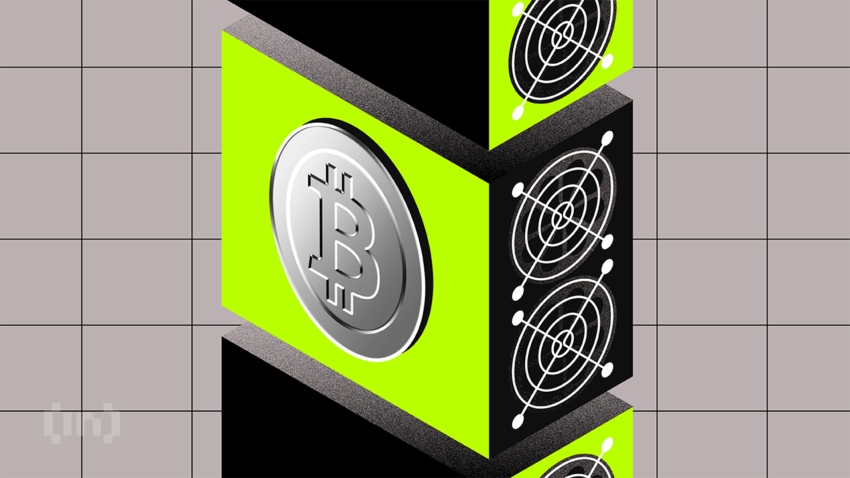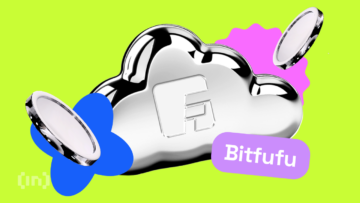Mining pools are a cost-effective solution to cryptocurrency mining. They allow miners to save costs on mining rigs, electricity costs, equipment, and much more. In this guide, we’ll examine some of the top mining pool options and how to join one.
- What are cryptocurrency mining pools?
- How cryptocurrency mining pools work
- Cloud mining: Another transformative mining endeavor
- Understanding pool reward split mechanisms
- The best cryptocurrency mining pools
- Factors to consider when selecting mining pools
- Choose the best mining pool for you
- Frequently asked questions
What are cryptocurrency mining pools?

A cryptocurrency mining pool is a group of miners that combines or ‘pools’ their resources together to mint cryptocurrency. It is an alternative to solo mining, which many believe to be expensive and risky.
Mining pools provide a cheaper and more convenient alternative to solo mining, allowing enthusiasts to get in on the activity without necessarily committing so much money to it. Mining pools have gained widespread adoption, improving mining space’s democratization and allowing new prospective miners free entry.
How cryptocurrency mining pools work
Before we discuss cryptocurrency mining, we need to explain proof-of-work (PoW). PoW is a mechanism that allows miners to validate transactions based on their hardware’s ability to solve complex computational problems. It’s the algorithm used to mine popular cryptocurrencies like Bitcoin.
Cryptocurrency mining involves verifying and adding transactions to blockchains and releasing new units of the asset into circulation, also known as minting.
While it sounds easy, crypto mining can be quite expensive. To get it right, you will need a lot of processing power and high electricity consumption. Miners will compete to solve mathematical puzzles, which takes a lot of time and resources.
Some mining protocols are configured to become more complex as activity increases and less difficult as miners leave the network.
Thanks to the possible rewards, mining has become incredibly lucrative. So, more people have opted to try it — evidently raising its difficulty. With more people trying to get their fair share, finding new blocks is more complicated, and miners require more computing power.
Today, you can find Graphics Processing Units (GPUs) and Application-Specific Integrated Circuits (ASICs) worth much more than what many can afford. Considering electricity costs and other expenses, getting into the mining space might not be easy.
Enter the mining pool
With a mining pool, a group of miners works together to improve their chances of getting a block and verifying data. Through mining pools, miners combine their computing power, ensuring that they can achieve their goals faster.
When the mining pool mines a block, each participant gets a share of the rewards based on a formula. The most common method is to split the rewards by proportion of the amount of computing power provided. However, the sharing formula could also differ between pools.
It’s easy to see the attraction of mining pools. Individual mining can be more lucrative, but your chances of getting a block are low.
Even if you did get your block, you need to consider the funds you would have spent running the operation for so long. Mining isn’t overly profitable for individuals, and things are incredibly challenging now since several cryptocurrencies – primarily Bitcoin – are harder to mine.

Mining pools solve this. They require less input in terms of hardware, and you also don’t have to pay much electricity costs.
By partnering with other miners, you can contribute your computing power as it is and get your fair share when the pool mines a block of transactions. Teaming up with others essentially increases your chances of success.
On the flip side, there’s the fact that you’re surrendering your autonomy in the mining process. Mining pools are bound by laid-out rules that determine how participants approach the mining process. Additionally, you could earn less with a mining pool compared to mining solo.
Cloud mining: Another transformative mining endeavor
Many see cloud mining as the next frontier for crypto mining. This service allows you to mine a cryptocurrency using the rented cloud computing resources of a service provider.
With cloud mining, you essentially participate remotely in the mining process while paying a fee to the company to maintain its operations.
All participants become members of a mining pool, and you purchase a certain amount of hash power. Each participant gets a pro-rata share of the profits based on the amount of hash power they rent.
Cloud mining has many benefits. It reduces the cost barriers for miners, as the service provider makes the investment for you. Besides the cost benefits, it also eliminates technical barriers to setting up a mining operation. All you have to do is to check your balances on a smartphone.
Understanding pool reward split mechanisms
Before we discuss the reward methods for mining pools, we must understand what shares are. Shares are units that allow pool owners to calculate an individual miner’s contribution to the pool. Miners are allocated shares that are proportional to their contribution to the entire pool.
Through shares, miners can get paid by the pool based on their contribution. Note that shares are practically invisible. They have no actual value and are just terms pool operators use to determine how much to pay pool participants.
Shares can be categorized into accepted or rejected shares. Accepted shares are work that contributes towards a round in a pool. The more shares a miner contributes during a round, the higher their payback. Rejected shares are work that doesn’t contribute to discovering new cryptocurrencies. They are not compensated.
So, according to the share amount, mining pools can employ any of the following payment methods:
1. Pay-Per-Share (PPS)
The PPS scheme sees miners get shares that can be paid during the hashing process. With PPS, miners can get paid for valid shares contributed, regardless of whether a block was solved during their participation or not.
To effect payments, the pool operators will pay miners from their balance. Share rates are fixed here, and miners are often informed in advance.
There’s a new version of PPS known as PPS+ rewards. With this method, you’re essentially running the PPS mechanism in tandem with the TX fees included in the block. These TX fees are distributed using PPLNs(more on this later). The PPS + rewards system reduces miners’ risk of being underpaid for their pool contributions.
Sadly, this scheme also has a downside. Most times, pool operators charge high fees to cover their risks.
2. Proportional
This system pays members rewards that are based on each member’s shares in the pool’s total shares. That’s how the Proportional reward works. The greater your computing power and the longer you mined to get the block, the more shares you can commit.
3. Score-Based
The score-based payment was built to prevent pool-hopping. Here, pool operators calculate your compute power and mining time and aggregate them into a “scoring hash rate” score. So, the longer you stay in the pool, the greater your score and the higher the value of the shares you get. Your score gets smaller when you stop mining, and your shares’ value drops. When miners find a block, they get their rewards.
4. Pay Per Last N Shares (PPLNS)
In PPLNS, miners only get paid for the shares allocated to them during a predetermined “window,” which ends with securing a block.
Unlike other payment schemes, shares owned outside this window aren’t rewarded. In this scheme, windows could be defined as a time frame or a certain number (N) representing the last shares allocated to the miner up to the block’s solving.
For instance, if N is 1 billion, only the last billion shares will be rewarded when a block is found. If N isn’t defined, it is usually set as a multiple of mining difficulty and a constant.
With PPLNS, miners can earn higher rewards if they receive more shares in the last N shares – or they get no rewards if they don’t get any shares within the range.
The best cryptocurrency mining pools

To be fair, selecting the best mining pools depends on your preference. Mining pools differ based on several factors, and you will need to choose which works best for you. However, some of the most popular pools include:
Top Bitcoin mining pools
BHere are some of the best Bitcoin mining pools of 2024.
1. Braiins Pool (formerly SlushPool)
Established in 2010, SlushPool was the very first mining pool. It would eventually rebrand to Braiins Pool and has maintained a strong position in the industry, providing impressive gains and returns to participants.
The Czech Republic-based mining pool follows a score-based system and is a medium-sized pool. The pool’s operators take 2.5% in fees from every block mining reward, and the service itself boasts a simple interface that anyone can follow and understand.
2. Public Pool
Public Pool is an open-source solo Bitcoin mining pool. It operates on the solo mining approach but with a pool-like structure. In this configuration, miners can provide processing power separately. The miner who successfully mines a block earns the whole block reward.
This differs from traditional mining pools, in which participants distribute incentives. Public Pool is intended to be a completely open-source option for those who want to mine alone but benefit from pool infrastructure.
3. Antpool
Antpool is a Chinese-based mining pool operated by Bitmain Technologies, the world’s largest cryptocurrency mining hardware provider.
This medium-sized mining pool allows you to choose between two reward categories: PPLNS (with a 0% fee) and PPS+ (with a 4% from block rewards and a 2% mining fee). Of course, using the latter provides a higher chance of getting rewards.
Antpool makes payments once daily, although you must hold over 0.001 BTC to get your money.
Antpool’s user interface is beginner-friendly, with a dashboard that displays earnings, hash rates, and other critical details. The platform also has advanced security infrastructure, ensuring your earnings are secure.
4. BTC.com
BTC.com is another long-serving mining pool that is still making waves to this day. Also owned by Bitmain Technologies, this pool was established in 2016. It comes with features similar to Antpool, including the FPPS and PP+ sub-categories. Service fees stand at 1.5%, and the pool’s payment threshold is also 0.001 BTC.
5. F2Pool
Established in 2013, F2Pool is a medium-sized pool. It takes a 2%-4% fee, which is quite expensive. The payout thresholds vary from coin to coin. One of F2Pool’s most significant benefits is that it also supports mining in other cryptocurrencies. These include Ether, ZCash, and Litecoin. The pool also runs a daily automatic payout, although the payment threshold is 0.005 BTC.
Like many of the top pools, this one features a simple layout and easy-to-use interface.
6. Poolin
Poolin was established in 2017 by three former Bitmain employees. The mining pool has grown in leaps and bounds over the past few years. With hundreds of monthly BTC, Poolin is one of the top mining pools worldwide.
This pool offers multi-currency support, an easy-to-use interface, and an FPPS mining mechanism. The pool charges 2.5 % in fees.
Altcoin mining pools
1. Nanopool
Nanopool is a multi-currency mining pool. It’s got a PPLNS payment scheme, as well as a 1% fee and payouts several times daily. The minimum payout threshold on Nanopool is 0.2 ETH, and the pool allows you to also mine Monero, ZCash, and Ethereum Classic.
2. 2Miners
2Miners is a mining pool for several cryptocurrencies that supports both GPU and ASIC miners. It is distinguished by consistent payouts, support for many cryptocurrencies, and compatibility with mining software like as Nicehash.
2Miners offers extensive lessons, stable servers, rig monitoring bots, and a community help system. This pool is known for its high availability, with data centers spread across Europe, the United States, and Asia, resulting in minimal ping and efficient mining operations.
3. Hiveon
The Hiveon company provides a comprehensive mining ecosystem that provides a variety of services, including Hiveon OS, Hiveon Pool, ASIC Firmware, and ASIC Hub.
Hiveon Pool is a mining pool service, whereas ASIC Firmware and ASIC Hub are supplementary tools for increasing the efficiency and performance of cryptocurrency mining operations. This ecosystem is designed to provide miners with a comprehensive solution, including rig administration and mining process optimization.
Factors to consider when selecting mining pools
- Reputation: Like everything else in the crypto industry, scammers pose as mining pool operators to steal your coins. You don’t want to pick a pool that steals from you – or worse, which doesn’t pay you when due. So, when you select a pool, check out reviews to see what current miners are saying.
- Cryptocurrency support: It goes without saying – if you’re looking to join a mining pool, you should be able to mine your cryptocurrency of choice.
- Size: You must consider the pool’s size along with its reputation. Generally, the rule of thumb is the bigger, the better.
Pool size is based on the number of connected miners and the pool’s hash rate. Joining small pools won’t be much more profitable than solo mining.
However, while you can easily find large pools, you also need to consider that these pools usually have high difficulty. So, you might not be able to join these pools if you don’t have powerful enough equipment. So, you must strike a balance between pool size and equipment power. This shouldn’t be much of a problem.
Payment rules and history
You must consider the payment threshold when selecting a pool to join. If you’re a small miner and the pool’s minimum payment threshold is high, you might not get paid for months.
Keep in mind that payment thresholds will also depend on the currency. Some assets have low transaction fees, and their thresholds are usually lower.
Choose the best mining pool for you
Crypto mining pools provide an exciting approach to mining. They are cost-effective and can offer several benefits to members, especially since you get to mine at your capacity. While your rewards won’t be the same as when you decide to mine solo, your earnings should accumulate over time, and you should get sizable profits.
Frequently asked questions
What is mining?
What is the difference between proof-of-work and proof-of-stake?
What are the costs and benefits of cryptocurrency mining?
Which mining pool is the best?
Which crypto is easy to mine?
How long does it take to mine 1 BTC?
What is the most efficient miner in 2024?
How do I choose a good mining pool?
Trusted
Disclaimer
In line with the Trust Project guidelines, the educational content on this website is offered in good faith and for general information purposes only. BeInCrypto prioritizes providing high-quality information, taking the time to research and create informative content for readers. While partners may reward the company with commissions for placements in articles, these commissions do not influence the unbiased, honest, and helpful content creation process. Any action taken by the reader based on this information is strictly at their own risk. Please note that our Terms and Conditions, Privacy Policy, and Disclaimers have been updated.




